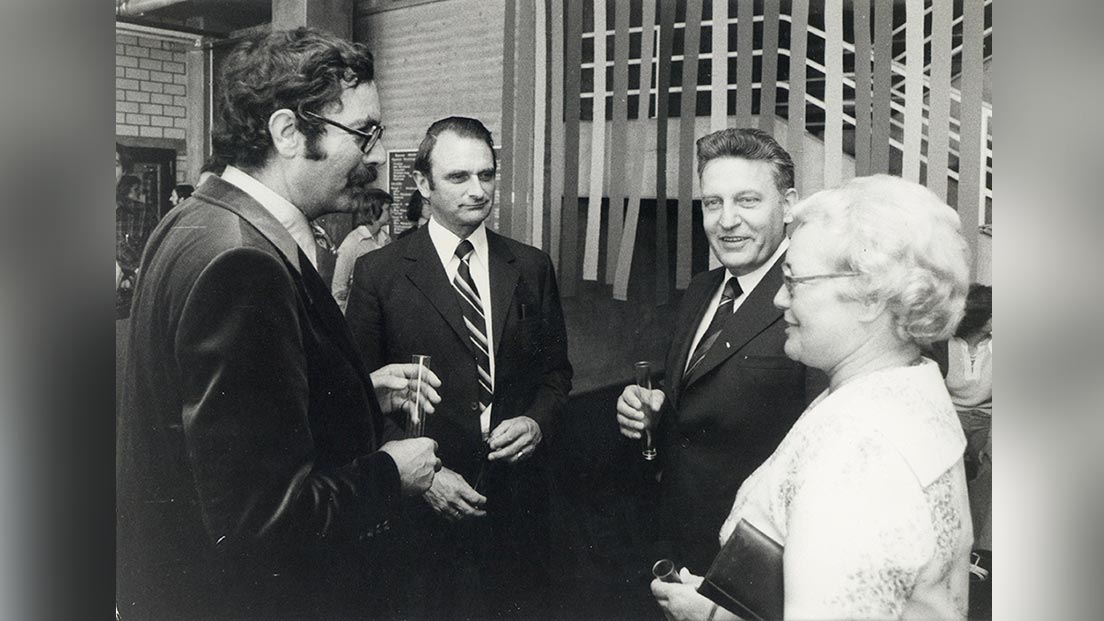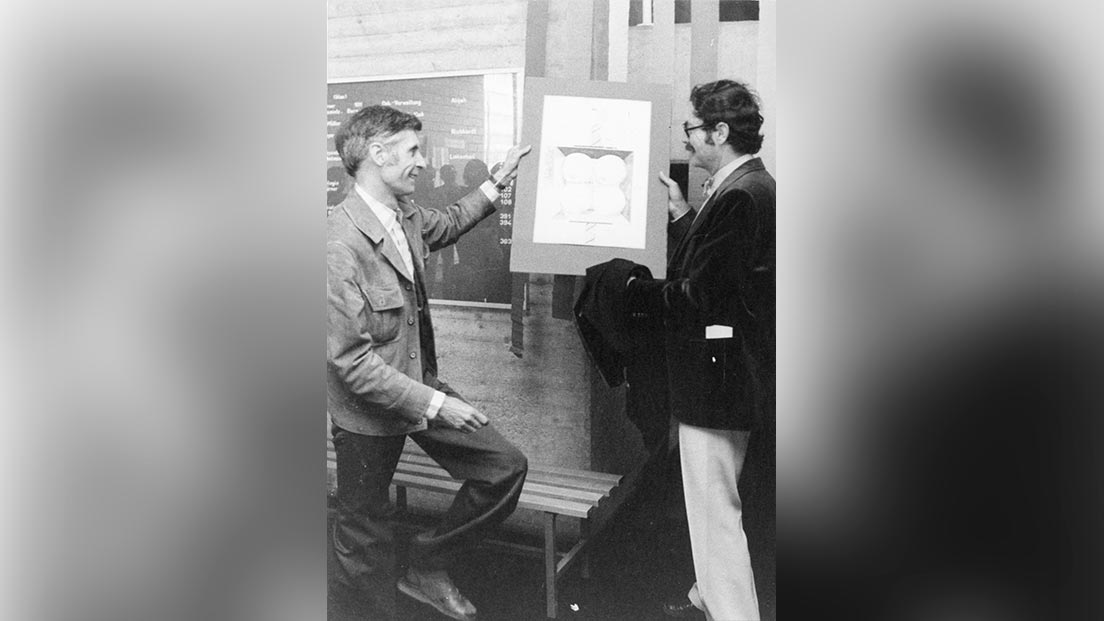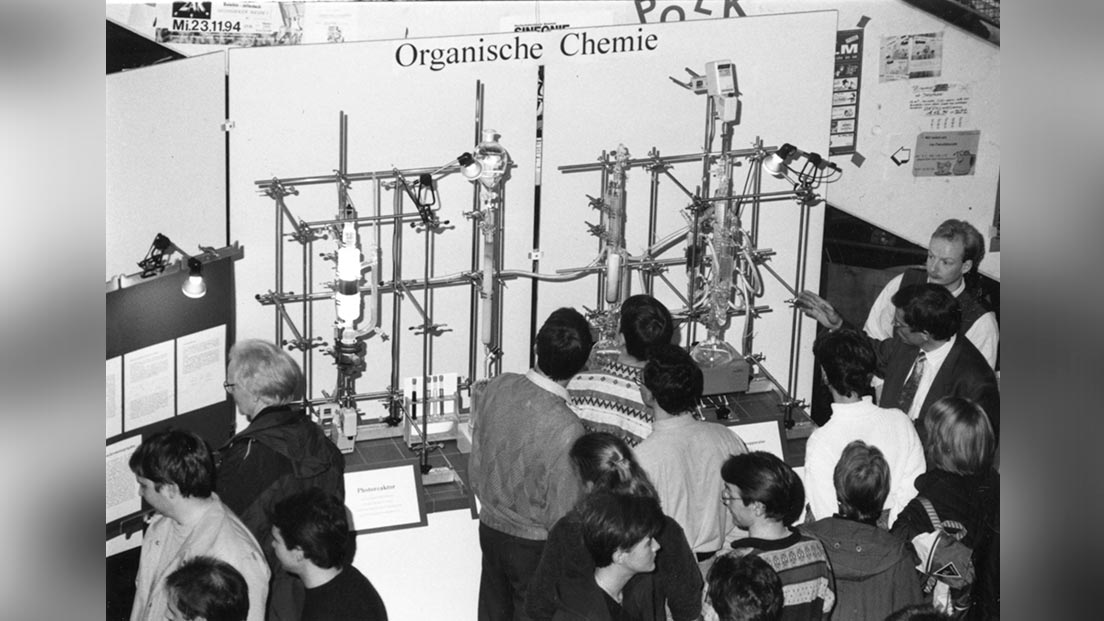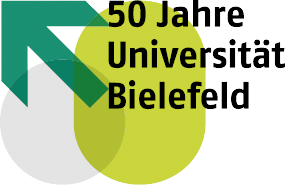
–
Photo: Peter Thölen
Source: WB (Universitätsarchiv Bielefeld, FOS 01832)
As early as 1973, the Dr. Oetker company agreed to provide an equipped laboratory and a meeting room for the Faculty. The professors involved in founding the Faculty were able to work for nearly two years on the concept of the study programme. When the Faculty was founded in July 1975, four professorial chairs were established: Inorganic, Organic, Physical and Theoretic Chemistry. Further expansion of the Faculty was delayed due to the considerable financial problems of the NRW region following the oil crisis. The move to the laboratories in the main university building in 1977 was important for the Faculty’s future development. The first thirty students had begun their studies in behavioural research in the winter semester of 1974/75, so that the move brought about a significant improvement in research and teaching opportunities. The Faculty grew further through the involvement in Collaborative Research Centres in the 1980s and 1990s (SFB 216 “Polarisation and Correlation in Atomic Collisions” and SFB 223 “Pathological Mechanisms of Cellular Interactions”). Further professorial chairs were created and Bielefeld’s Faculty of Chemistry put itself firmly on the national and international research map.
At the beginning of the 2000s, the Faculty of Chemistry initiated the “teutolab”, giving pupils the opportunity to explore their interest in chemistry in an exciting way.

–
Photo: Peter Thölen
Source: WB (Universitätsarchiv Bielefeld, FOS 01849)
Turned away from University despite top grade
Curious side note: In the winter semester of 1975, as reported in the Bielefeld University newspaper, the pupil with the best grade in chemistry in the whole of Germany (Abitur grade 0.9) was turned away from studying chemistry at Bielefeld University. According to the Central Office for the Allocation of Study Places (ZVS), although general admission to study chemistry depended on grades, in certain universities the applicant’s social circumstances were taken into consideration. In this case, twenty candidates competed against the top-graded pupil for the twenty available course places and won because they were more anchored in the region (social engagement, children etc.). In the end, as the candidate had not provided the name of another university as a possible alternative to Bielefeld in his application, he wasn’t allocated a study place at all, despite his excellent grade.

–
Photo: Klaus F. Linnenbrügger
Source: Universitätsarchiv Bielefeld, FOS 01852

